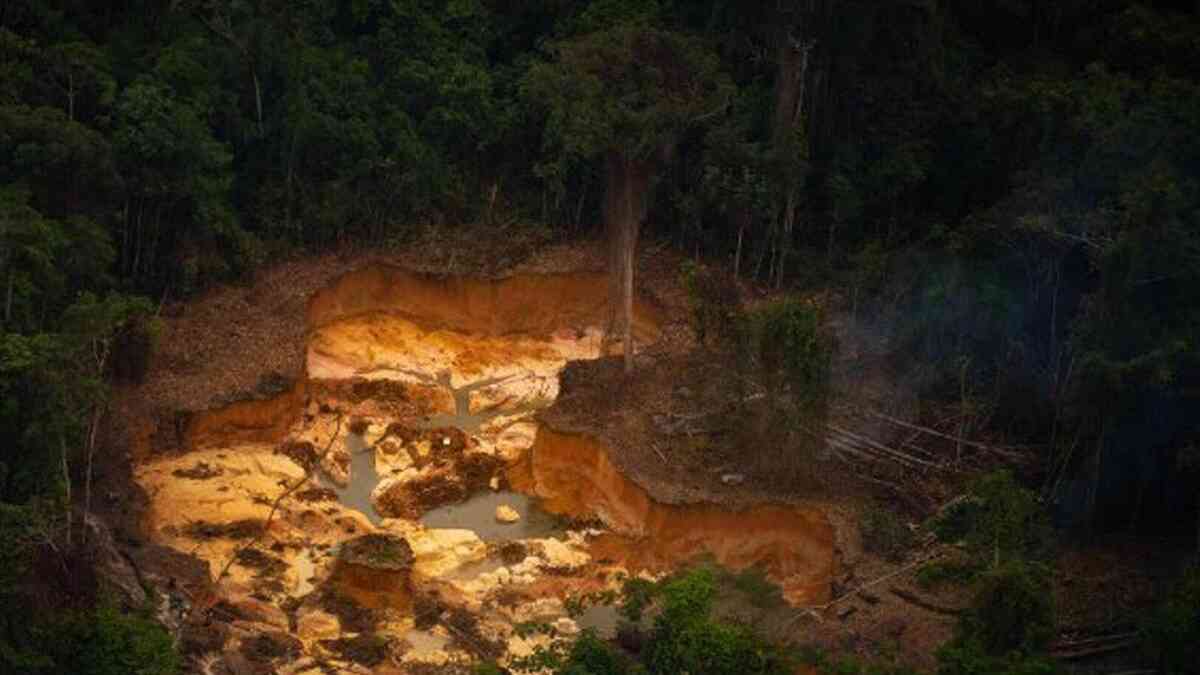The National Bank for Economic and Social Development (BNDES) has withheld R$25 million in financing resources from 58 rural landowners involved in illegal deforestation.
To check who is illegally clearing forests, the bank is using data from MapBiomas deforestation monitoring since February of this year. The tool, complete with geo-referenced maps, shows precisely what the land cover and use are like in each of the country’s biomes. This technology makes it possible to detect logging on a daily basis.
In an interview with Agência Brasil and Rádio Nacional, the president of BNDES, Aloizio Mercadante, assesses the advantages of the technology used.
It is unquestionable because it is an image. How do you ask? Using technology is much more efficient than simply sending an inspector to the area, walking around the property, and identifying problems. Satellite imaging is a revolutionary leap, it’s a disruptive technology.”
Withholding financing will be the bank’s line from now on, Mercadante said. “BNDES will be relentless. We no longer accept criminal entrepreneurs who clear forests and have financing from public and private banks as well, because we work with many partners.”
Valuable
In the first month of the partnership with MapBiomas alone, BNDES blocked about R$25 million from these 58 rural estates, the equivalent of 1,300 football fields. The names of the owners have not been disclosed because the operations are carried out under bank secrecy.
However, BNDES asserts that most of the land is a soybean and corn production unit. According to the bank, in February, the states with the greatest impediments to rural credit were Tocantins, Pará, Rondônia, Paraná and Minas Gerais, with this occurring in other units of the federation.
Of the total number of landowners who lost rural credit grants, three appealed the decision. Defenses claim they have official licenses to clear forests. BNDES will analyze the documents submitted in the appeal. If there is a legal basis, the funding will be authorized again.
President Mercadante indicates that the next step is precisely to partner with state governments to receive this information.
“We are faced with the challenge of accessing information on deforestation licenses from state agencies. In the next step, first, we will make an agreement with the Amazon states, and then with other biomes so that we can have a full vetting.”
BNDES sends MapBiomas satellite imagery to Ibama with irregularities identified. The aim is to support the Institute in taking appropriate measures to counter illegal deforestation, such as fines and damage claims.
In order to get rural credit back, a property that has been found illegal will need to settle and repair damage to the distressed area, in front of environmental watchdogs.
The BNDES Board presents the pioneering spirit of action, Mercadante revealed, during the annual meeting of the Inter-American Development Bank (IDB), which takes place in Panama between March 16-19.
“We are ready to advise, transfer and work in partnership. It would be very good if, for example, the countries of the Amazon region used the same tool. It would have a very big impact, including being very well received by the international community.”
The climate crisis will not be reversed if the financial system does not change. If those who own the money and finance the economy do not change the financing standards, humanity is in danger.”
green borders
In his administration at the helm of BNDES, Aloizio Mercadante wants to increase BNDES investments in Brazil to reduce the environmental impacts of climate change. He mentioned the Amazon fund, which is managed by BNDES.
“We have a unique responsibility. At the same time that we have to be tough and fight deforestation in Brazil, greenhouse gas emissions, this will allow us to attract more financing, investments and alternatives. This is the case of the Amazon fund.”
The Amazon Fund has already received R$3.3 billion in donations, of which R$1 billion is from Norway and R$200 million is from Germany. Mercadante notes that the United Kingdom and the United States have already expressed interest in cooperating with the Fund.
In total, the fund raises about R$5.4 billion, with R$1.8 billion already contracted to fund social conservation projects. The rest is still available, according to the bank’s announcement.
